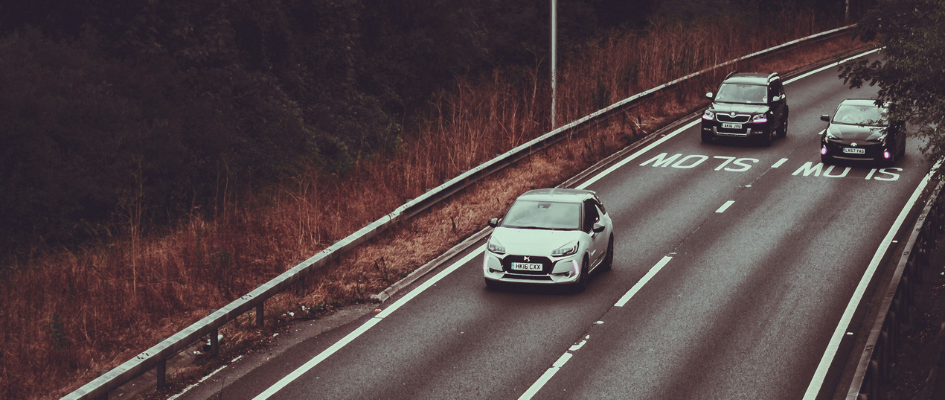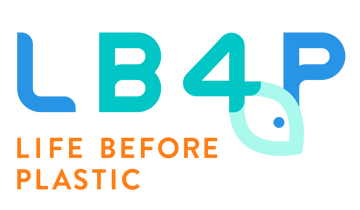Imperfect Sustainability: A Realistic Approach to an Eco-Friendly Lifestyle
How taking unsustainable actions just means that you're an imperfect environmentalist
Written by Charlie Gill. Last updated 02/03/24.
Estimated reading time 7 minutes.
When living (or trying) to live an environmentally conscious lifestyle, the pursuit of perfection can lead to a feeling of guilt for not meeting those unrealistic expectations that you’ve set yourself. I’ve been there. I’m an avid environmentalist but I acknowledge that I’m not perfect and there are aspects of my lifestyle that wouldn’t be described as eco-friendly.
In this article, I aim to share some of my less sustainable practices while still calling myself an environmentalist. My goal is to encourage a conversation about how eco-conscious people striving for sustainability are and should be imperfect.
Buying Food in Plastic
By now, we know the risks of plastic. While it can have benefits due to the fact it’s lightweight and strong those very advantages can cause problems when not disposed of correctly. Plastic pollution is a huge threat to wildlife through ingestion, trapping them, and by altering ecosystems. It can also pose risks to human health.
But plastic is unavoidable. While refill shops exist, in my neighbourhood, access to package-free food options are limited and the reality is that most supermarkets still predominantly package food in plastic. Where I can I will avoid single-use and opt for zero waste vegetables but balancing the cost and convenience of food options can be a nuanced challenge, especially when affordable alternatives in glass or cardboard are unavailable. It’s worth considering whether a food item in plastic is less sustainable if it is locally sourced and long-lasting, over a plastic-free food item flown in from overseas or meat with a higher carbon lifecycle.
Using a Tumble Dryer
While using a dryer reduces the time it takes to dry clothes, it increases the amount of energy used washing clothes. In the UK around 60% of homes have a tumble dryer rather than hanging clothes out to dry. Using a tumbler dryer slowly damages clothes meaning that they won’t last as long as air drying. The dryer lint is made up of fibres, each time thinning out clothes. One study found that towels lost 50% of their strength after being washed and dried only 20 times.
I am guilty of using a tumble dryer in winter. Though I recognise the environmental impact of this choice, practical considerations sometimes mean that I have to compromise on ideal sustainability practices. In the summer I always hang my clothes out to dry and I’m hoping to explore alternative drying methods like a heated clothes hanger and dehumidifier. That way I can explore improving while still living an imperfectly sustainability lifestyle.

Owning a Car
The fuel consumption and emissions from running a car form 80-90% of its environmental impact. We know that cars cause significant air quality problems with air pollution responsible for up to 30,000 premature deaths every year. All that said, the majority of people still own a car. I’m no different.
I currently live in Canada, where public transport options are limited so owning a car becomes a practical necessity. I fully acknowledge the environmental implications and so try to limit my impact elsewhere. I share a car with my partner to minimise our collective carbon footprint and plan on transitioning to a hybrid or electric vehicle when we come back to the UK. Being in North America, I really recognise how lucky we are in Europe to have access to public transport networks and walkable towns and cities.
Owning a Dog
Pet ownership can pose environmental challenges due to their dietary needs. The meat-based pet food we feed our pets uses land, water and energy resources causing significant greenhouse gas emissions. It’s even suggested that owning a medium-size dog can have the same carbon emissions as a large SUV.
While I personally adhere to a plant-based diet as much as possible to be as sustainable as possible, I am imperfect and still feed my dog an omnivore diet. The debate surrounding pet diets within the environmental space is complex, and I believe in making choices that prioritise the well-being of my dog while staying mindful of maintaining an eco-friendly lifestyle. As a rescue dog, he already existed when we got him as a one-year-old, and I believe that owning a dog can bring other environmental benefits to a person by bringing them closer to nature.

Flying by Plane
It’s a well known fact that flying is a leading polluting industry responsible for around 5% of global warming. One of the simplest ways we can make a difference to the climate crisis is by reducing the amount we fly. Reducing air travel is a personal commitment and something we can each limit.
I do still fly occasionally, I flew long-haul to get to Canada but I do really try to reduce the amount of specifically short-haul flights I take. I recommend train journeys or even coach and car journeys where possible. France recognised the impact of short-haul flights by banning them where it was possible to reach the destination within a four hour train journey. I can’t recommend train journey’s enough. Having done a few Interrail trips around Europe there are so many memories to be made on the journey. Taking public, land-based transport where possible is the most sustainable option.
Embracing imperfection is key to maintaining a realistic approach to sustainable living. While corporations and governments hold the most responsibility for environmental issues, individual actions really do matter. We each contribute to the collective impact.
I really believe that community engagement is vital and we should all be talking about our progress rather than perfection when it comes to living sustainable. As Anne-Marie Bonneau said; we don’t need a handful of people doing zero waste perfectly. We need millions of people doing it imperfectly.
Are you living an imperfectly sustainable lifestyle? What are the unsustainable things that you do in your daily life?
Enjoy this article? You may also be interested in,
- Ugly Sustainability: My non-aesthetic life
- Eco-Friendly Pet Care for Animal Lovers
- Climate crisis: Why I travelled by train from Leeds to Belgrade
At Life Before Plastic, we will always provide free content for you to enjoy. If you would like to support us you can buy us a virtual coffee.
Video Transcript - Accessibility
Hi, I'm Charlie, and on my channel, I talk about all things sustainability, from living a realistic Eco lifestyle to DIYs and product reviews. Remember those days of the zero waste trend where we all tried to fit our rubbish into that one tiny glass jar? Well, that's not me, and that's not the trend anymore either. To be honest, I'm glad perfect sustainability is not attainable, and it just fosters Eco guilt for the individuals who are most likely doing the most for the environment in the first place.
In this video, I'm sharing some of the non-sustainable things that I do even though I'm an environmentalist to remind you that no one is perfect, and we shouldn't be holding ourselves to this impossible standard. This is a caveat, but I fully know that some of these things are pretty unsustainable, but I'm okay with that and am always trying to improve. I just want to make sure that other people know that you can do these things and still care about the environment and call yourself an environmentalist. We're not perfect, and if we all try our best, that is the best way forward.
Buying food in plastic: When I can, I will visit a refill shop and try to refill my food, but living in Canada, we don't have the best options for refill shops. Luckily, there is one in the town where I live, but they don't really have options for refilling food. When I'm at a supermarket, I try to purchase in glass or cardboard, but sometimes there isn't an option, or the alternative is much more expensive. I can't complain too much because there is a refill shop, but it still doesn't allow me to avoid purchasing any plastic.
Using a dryer: I still use the dryer in Winter as I'm living in Canada, and we don't have radiators or a clothes horse. Underfloor heating means we don't have anywhere to directly hang our clothes to dry. I know it's not environmentally friendly, but it's necessary in my current living situation. I've had recommendations to try a heated clothes hanger and a dehumidifier, and that's something I want to explore when I move back home.
Owning a car: I still have a car and drive to work, for groceries, and other daily activities. Public transport is not very good in Canada, and there's a lack of infrastructure like trains. Ideally, when I return to the UK, I'd like to purchase a hybrid or electric vehicle, but for now, owning a car is a practical necessity.
Owning a dog: I own a dog, and while they can be bad for the environment in terms of consumption, I try to make his life as environmentally friendly as possible. He still eats an omnivore diet, which can be controversial in the environmental space, but I believe it's the best for his health.
Flying by plane: I still travel by plane occasionally, but I'm trying to reduce how much I fly. I've had positive experiences travelling by train in Europe and recommend it whenever possible. Limiting short-haul flights is crucial, and I wish there were better transport links worldwide, especially by train.
Progress over perfection: Being perfect isn't my goal, and I don't think it should be anyone's. Corporations and governments have made significant negative impacts, but individuals can still have an influence. We should focus on progress over perfection, spreading awareness, and encouraging change within our circles.
If you want more inspiration for a realistic eco lifestyle, check out my video on ugly sustainable things that I own. Remember, the most sustainable things you have are the ones already in your household. Do you consider yourself an environmentalist but still act unsustainably sometimes? Let's chat in the comments. In the description, you'll find links to my social media and blog, and subscribe for more honest and realistic sustainable lifestyle content. Until next time.

